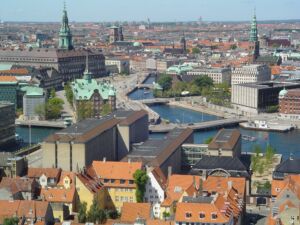News
Copenhagen slips down ‘most expensive cities for expats’ list
This article is more than 10 years old.
While one list says the capital is less liveable due to the expenses, another says it’s getting cheaper to live in

Who should we trust more: Mercer or Monocle? Because their reports appear to contradict each other (photo: Thue)
Copenhagen has fallen out of the top 20 on Mercer’s annual assessment of the world’s most expensive cities for expats to settle in, slipping from 15th all the way down to 24th.
Asian cities are becoming more prominent on the list, taking five of the spots in the top 10.
Currency fluctuations were blamed for many of the changes. Overall, the cost of living in western Europe, when compared to the rest of the world, has fallen due to a slide in the euro.
READ MORE: Something we all knew already: Copenhagen is expensive for expats
It’s not coincidence that the three European cities in the top 10 – Zurich, Geneva and Bern – are all Swiss and use the Swiss franc, which jumped in January after a ceiling was removed on its value.
The survey by the Mercer consulting group analyses the costs of over 200 goods and services in over 207 cities worldwide. It uses New York as its base city for comparison and measures currency movements against the dollar, which has appreciated significantly from a year ago.
Contradiction much?
The report appears to contradict one released by Monocle earlier this month that presents a list of the most liveable cities in the world, which saw Denmark fall from first to tenth place in the space of a year.
The reason, according to Monocle, was – wait for it – that Copenhagen is too expensive.
Monocle’s editor-in-chief Tyler Brule asserted that Copenhagen’s fall is mostly due to the introduction of new economic criteria.
“The most dramatic result of this year’s survey is that Copenhagen, which won in both 2013 and 2014, dropped to the bottom of the top 10. As our correspondent in Copenhagen says: ‘The city is just too expensive,’” he said.
“We have added 22 new ranking criteria to the study, including housing and living expenses. They include the price of a three-room house, a cup of coffee, a glass of wine and a decent lunch.”
READ MORE: Copenhagen no longer ‘world’s most liveable city’
Leading the Mercer rankings as the most expensive city for expats was the Angolan capital Luanda, which retained its top spot due to the high price of imported goods and security services used by many foreigners.










































